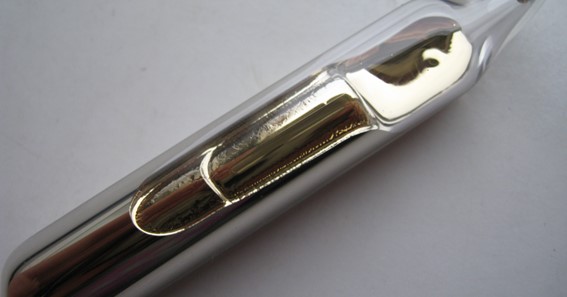Are you curious to know what is the softest metal? You have come to the right place as I am going to tell you everything about the softest metal in a very simple explanation. Without further discussion let’s begin to know what is the softest metal?
Metals are known for their strength, durability, and wide range of applications. However, not all metals possess the same level of hardness. In fact, some metals are incredibly soft and malleable, making them unique in their properties and applications. In this blog post, we will delve into the world of soft metals, exploring the characteristics of the softest metal and its significance in various industries and scientific endeavors.
What Is The Softest Metal?
The hardness of a metal refers to its resistance to deformation, indentation, or scratching. It is typically measured using the Mohs scale or the Vickers hardness test. On the opposite end of the hardness spectrum, we find the softest metals, which exhibit low hardness values and are characterized by their malleability, ductility, and low strength.
The Softest Metal: Indium
Among the various metals, indium is widely recognized as one of the softest. With a Mohs hardness of approximately 1.2, it is exceptionally malleable and can be easily scratched by a fingernail. Indium possesses a silvery-white appearance and is often used as a coating or a thin film due to its soft and pliable nature.
Significance And Applications
- Electronics And Semiconductors: Indium’s softness and low melting point make it an ideal material for producing low-temperature solder alloys. These alloys are used in electronics and semiconductor manufacturing processes, enabling the creation of reliable electrical connections.
- Thin-Film Deposition: Indium’s ability to form thin films with excellent adhesion makes it valuable in thin-film deposition processes. It is frequently used in applications such as solar cells, touch screens, and liquid crystal displays (LCDs).
- Thermal Interface Materials: The softness and high thermal conductivity of indium make it suitable for use as a thermal interface material. It is utilized in heat sinks and thermoelectric modules to ensure efficient heat transfer and dissipation.
- Low-Temperature Sealing: Indium’s low melting point allows it to be used in low-temperature sealing applications. It is often employed to create hermetic seals in vacuum devices, such as photomultiplier tubes and gas lasers.
- Nuclear Industry: Indium has unique properties that make it suitable for certain applications in the nuclear industry. It is used as a neutron absorber in control rods, and its softness allows it to deform under pressure, compensating for thermal expansion and contraction.
Exploring Other Soft Metals
While indium is recognized as one of the softest metals, there are other metals that also exhibit low hardness. Some notable examples include:
- Gold: Gold is known for its softness and malleability. It has a Mohs hardness of approximately 2.5 and is often alloyed with other metals to increase its strength for jewelry and industrial applications.
- Lead: Lead is a highly soft and ductile metal with a Mohs hardness of around 1.5. Its softness makes it suitable for applications such as radiation shielding, batteries, and soldering.
- Tin: Tin is a soft and malleable metal with a Mohs hardness of about 1.5. It is commonly used in soldering, coating, and as a protective layer for other metals.
Conclusion
While many metals possess high hardness and strength, there are certain metals that exhibit exceptional softness and malleability. Indium, with its low hardness and versatile properties, stands out as one of the softest metals. Its applications in electronics, semiconductors, thin-film deposition, and other industries highlight the significance of soft metals in various technological advancements. Understanding the unique characteristics of soft metals provides valuable insights into the diverse range of materials available for specific applications, allowing for innovative solutions and advancements in multiple fields.
Visit Ofstype to Get to know about more concepts like this.
FAQ
What Are The 10 Softest Metals?
According to the Mohs hardness scale, a list of soft metals includes;
- gold,
- silver,
- tin,
- zinc,
- aluminum,
- thorium,
- copper,
- brass and bronze.
What Is The Softest Type Of Metal?
* Caesium is the softest metal with the Mohs hardness of 0.2. * Always remember, the hardness of gold, silver, aluminium, zinc, lanthanum, cerium, jet is in between 2.5-3 and that of platinum is 3.5 (according to Mohs hardness).
Is There A Metal That Is Soft?
The two soft metals are sodium and potassium.
What Metal Is As Soft As Gold?
platinum
Even though platinum is softer than gold, it is much denser (heavier) and more pure. In its pure form it is approximately 95% platinum and 5% other metals.
I Have Covered All The Following Queries And Topics In The Above Article
What Is The Softest Metal In The World
What Is The Softest Metal On Earth
What Is The Melting Point Of The Softest Metal
What Is The Softest Metal That Is Magnetic
What Is The Softest Metal For A Ring
Is Gold The Softest Metal
Top 10 Softest Metals
Softest Metal In Group 1
Softest Metals In Order
Softest Element
Softest Metal At Room Temperature
Hardest And Softest Metal
Hard And Soft Metals List
What Is The Softest Metal
What are the two softest metals
Which metal is considered a soft metal?
